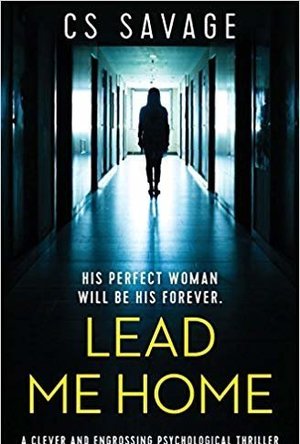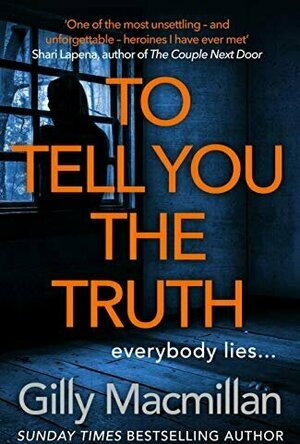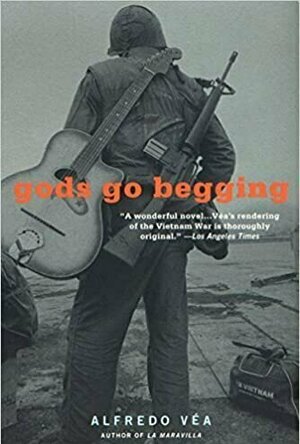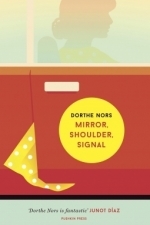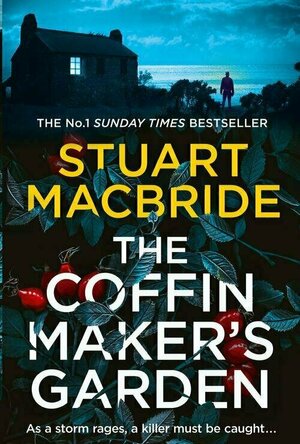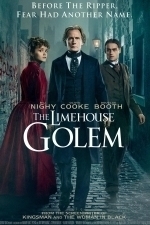Search
Sassy Brit (97 KP) rated Lead Me Home in Books
Jun 5, 2019
Lead Me Home by C.S. Savage instantly reminded me of The Blind by A.F. Brady, The Binding Song by Elodie Harper, and The Foster Child by Jenny Blackhurst all of which also feature an overworked NHS psychiatrist struggling to cope with their demanding roles, who end up going beyond the call of duty in order to protect the most vulnerable.
In this book, Dr Clancy Mclean has her suspicions about a couple of her psychotic patients. One of which, Beth, is convinced she is being stalked and her health is declining rapidly. Feeling forced to take it upon herself to protect Beth, Clancy irresponsibly brings Beth home to stay with her and her daughter, Rowan. Er, not allowed!
But teenager Rowan is having troubles of her own, in the form of an abusive ex-boyfriend who will not leave her alone. When she meets her new boyfriend, an older and more mature man, she is so smitten she decides to keep him a secret to prevent her mother interfering ~ at least until she gets to know him better. After all, she met him online. Her mother would never approve.
Would you?
The story is narrated by four characters. Clancy, her daughter Rowan, Beth who is one of Clancy’s patients and an unknown, deranged psycho, who shares his murderous plans in great (and very gruesome) detail.
Reading ‘Lead Me Home’ was like watching an episode of ‘The Wire in the Blood’, based on Val McDermid’s book of the same name ~ tense, gripping and oh, so horrific I could hardly breathe as I raced through to the end.
In fact, this is such a fast-paced, well-written, creepy read, it’s without a doubt one of my favourite psychological thriller’s this year. The psycho’s scenes totally freaked me out and I don’t think I’ve ever read a book quite as fast as this one!
When one person fell victim of the psycho, I felt absolutely, and emotionally, sucker-punched! Really, how could the author do that to me? Is this really C.S Savage’s debut novel, because I have to say I can hardly believe that is the case! I loved every minute of reading this. I’ll certainly be looking out for more by this author, and so should you!
Needless to say, I heartily recommend ‘Lead Me Home’, to other lovers of well-written crime fiction! Love creepy, psychological thrillers heavily steeped in horror? Then grab a copy of this book and prepare for a scare!
In this book, Dr Clancy Mclean has her suspicions about a couple of her psychotic patients. One of which, Beth, is convinced she is being stalked and her health is declining rapidly. Feeling forced to take it upon herself to protect Beth, Clancy irresponsibly brings Beth home to stay with her and her daughter, Rowan. Er, not allowed!
But teenager Rowan is having troubles of her own, in the form of an abusive ex-boyfriend who will not leave her alone. When she meets her new boyfriend, an older and more mature man, she is so smitten she decides to keep him a secret to prevent her mother interfering ~ at least until she gets to know him better. After all, she met him online. Her mother would never approve.
Would you?
The story is narrated by four characters. Clancy, her daughter Rowan, Beth who is one of Clancy’s patients and an unknown, deranged psycho, who shares his murderous plans in great (and very gruesome) detail.
Reading ‘Lead Me Home’ was like watching an episode of ‘The Wire in the Blood’, based on Val McDermid’s book of the same name ~ tense, gripping and oh, so horrific I could hardly breathe as I raced through to the end.
In fact, this is such a fast-paced, well-written, creepy read, it’s without a doubt one of my favourite psychological thriller’s this year. The psycho’s scenes totally freaked me out and I don’t think I’ve ever read a book quite as fast as this one!
When one person fell victim of the psycho, I felt absolutely, and emotionally, sucker-punched! Really, how could the author do that to me? Is this really C.S Savage’s debut novel, because I have to say I can hardly believe that is the case! I loved every minute of reading this. I’ll certainly be looking out for more by this author, and so should you!
Needless to say, I heartily recommend ‘Lead Me Home’, to other lovers of well-written crime fiction! Love creepy, psychological thrillers heavily steeped in horror? Then grab a copy of this book and prepare for a scare!
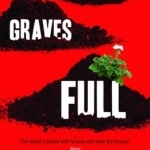
Three Graves Full
Jon Gray and Jamie Mason
Book
Hitchcock meets the Coen Brothers in a darkly comic suspense novel with the tense pacing of a...
Kristy H (1252 KP) rated To Tell You The Truth in Books
Oct 8, 2020
A twisty thriller with a disappointing ending
Lucy Harper is a famous writer, known for her crime fiction stories featuring her beloved character, Eliza. Her work has made her wealthy, something that particularly pleases her husband, Dan, a once aspiring writer who now "manages" Lucy's career and money. Lucy and Dan's life and marriage look perfect from the outside, but they are anything but. Then Dan suddenly goes missing. His disappearance reminds Lucy of another time someone vanished from her life: her younger brother, Teddy, who was lost in the woods very near the house Lucy and Dan now live in. Soon Lucy finds herself reminded more and more of her past, which seems to be quickly and dangerously colliding with her present.
"After all, what kind of person creates a character who walks right out of their books and into their life? He would think I'd lost my mind."
I absolutely adore Gilly Macmillan and her books, but this was not one of my all-time favorites. It's still good, though, and twisty, and I will admit that I didn't guess the (rather bizarre) outcome. However, the ending leaves much to be desired and does not wrap everything up, which left me frustrated. (And seemed to kick off a trend in my recent thrillers, where things end with plot pieces left hanging--I'm not okay with this.)
Lucy is an unreliable narrator extraordinaire--ever since she was small, she's had a best friend named Eliza. Why yes, Eliza happens to be the name of her fictional character, as well. Lucy talks to her imaginary friend, who seems to have untold power over her. If this sounds weird and creepy, it is, and Macmillan does a good job with the eerie oddity of it all and allowing us to wonder if we can trust anything that Lucy--or Eliza--say. Knowing who and what to believe is certainly a central theme here.
Dan, meanwhile, is absolutely despicable, and I was not too sad when he disappeared, honestly. The story alternates between present-day, with Lucy's point of view, and the past, around the time Teddy disappeared. It's certainly compelling. All in all, I would have probably rated this 4-stars if there had been a better ending, versus one that felt rushed and forced, without tying up all the loose ends. This is still a good, atmospheric thriller, with plenty of twists. 3.5 stars. And if you want to read more from Macmillan, I highly recommend The Perfect Girl or her Jim Clemo series--all books that I adore.
"After all, what kind of person creates a character who walks right out of their books and into their life? He would think I'd lost my mind."
I absolutely adore Gilly Macmillan and her books, but this was not one of my all-time favorites. It's still good, though, and twisty, and I will admit that I didn't guess the (rather bizarre) outcome. However, the ending leaves much to be desired and does not wrap everything up, which left me frustrated. (And seemed to kick off a trend in my recent thrillers, where things end with plot pieces left hanging--I'm not okay with this.)
Lucy is an unreliable narrator extraordinaire--ever since she was small, she's had a best friend named Eliza. Why yes, Eliza happens to be the name of her fictional character, as well. Lucy talks to her imaginary friend, who seems to have untold power over her. If this sounds weird and creepy, it is, and Macmillan does a good job with the eerie oddity of it all and allowing us to wonder if we can trust anything that Lucy--or Eliza--say. Knowing who and what to believe is certainly a central theme here.
Dan, meanwhile, is absolutely despicable, and I was not too sad when he disappeared, honestly. The story alternates between present-day, with Lucy's point of view, and the past, around the time Teddy disappeared. It's certainly compelling. All in all, I would have probably rated this 4-stars if there had been a better ending, versus one that felt rushed and forced, without tying up all the loose ends. This is still a good, atmospheric thriller, with plenty of twists. 3.5 stars. And if you want to read more from Macmillan, I highly recommend The Perfect Girl or her Jim Clemo series--all books that I adore.
Hadley (567 KP) rated Gods Go Begging in Books
May 8, 2021
Amazing writing (2 more)
Great storytelling
Good characters
Not many books can visit the Vietnam war so gracefully, especially fictional books that aren't political thrillers. Of course, there's a reason for that, other than drug use and the orders to kill innocent civilians, it was a war that drove soldiers to madness, but this is only the tip of the iceberg in Alfredo Vea's third novel Gods Go Begging.
Mai and Persephone are as close as sisters, one was born in America, and the other was born in Vietnam; the two met because their husbands had fought in the Vietnam war, but had never returned, sealing an unbreakable bond between the two women. While the two spent most of their time cooking together, they decided to open up a luncheonette, and share their love of food with the city - - - until one night, when two young men showed up to smash their dreams by murdering both of them in cold blood. Little did the defense attorney for one of the young men, Jesse Pasadoble, know that these women would not only leave a scar on him, but they would also cause memories from a hill in Vietnam to haunt him all over again.
While Pasadoble is working the two women's murder case, he's also working another heart-wrenching case involving a white supremacist who has possibly molested and raped his own niece. Pasadoble tries his best to distance himself from the case, especially because he has to defend the man in question, but sometimes he lets his temper get the best of him. Pasadoble comes face-to-face with his client in an angry stare-off. After putting up with racial statements from the client, Pasadoble puts him in his place. The client may be a big man who can frighten most people, but Pasadoble pacifies him with his own anger, threatening to kick his ass in front of everyone that is in the jail setting the tone of what type of person Pasadoble can be for the reader.
The readers get flashbacks of Pasadoble's time in the Vietnam war, specifically one fight that happened on a hill near the Loatian border. These flashbacks happen suddenly throughout the book, but I personally believe that they are so important to understanding the world in which Vea has created in the novel because, near the end of the book, these flashbacks make everything come full circle. One of these flashbacks introduces an important character who is the Padre in Pasadoble's platoon - - - during such flashback, the Padre has devastating things happen around him that begin to make him question his faith in God.
Although the flashbacks happen here and there, the story easily continues on with Pasadoble's double homicide case getting more complicated by the page when the second of the two suspects is suddenly found dead on a hill that the locals call 'Tourette's Hill.' One such local that lived near the hill is one of the victims' mothers, Mrs. Harp, who is a very odd character: she's an aging beauty queen whose home is covered in photographs of only her, and none of her deceased son, and even while Pasadoble questions her about her son, she seems to get lost in a reverie of what her life was like before the son existed.
Pasadoble is the key character in this story; without him, connections would not have been made and characters would not have mattered. Pasadoble, a man who has a way with words, such as speaking with an ex-girlfriend about a 'hill' : "Carolina, think about the stratifications of an open hillside, a place where earth has given way and time itself is left exposed, layer upon layer - - - silica, clay, diatoms, and ash. Down here at this level is the time of the swelling sea; here, the time of the desert when hot, rising air would have haunted our eyes; here is a jagged karst, a time when the world shook an abrasion into its own skin; and here are the fossil dead, here you will find love and war in the same shamble of strewn bone. Here and there, where the world has shifted and cracked open, one era will touch another. And once upon the rarest time, human hands and eyes from the distant past can seek out and find... search for and contact... hands and eyes of the present time... our time. " Pasadoble reveals that everyone has a 'hill' that they constantly battle, his just happens to be the one where he lost brothers on in Vietnam.
I can't go much further into the story without giving away some of the great details that made up this book, but I can say I was blown away by this story. This is by far one of the best crime fiction books I have ever read; this is one of those crazy good books that you have never heard of that will change how you view things after you read it. Vea is one of the few authors that exist today that can make a story read like poetry. I highly recommend this novel to people who like crime fiction.
Mai and Persephone are as close as sisters, one was born in America, and the other was born in Vietnam; the two met because their husbands had fought in the Vietnam war, but had never returned, sealing an unbreakable bond between the two women. While the two spent most of their time cooking together, they decided to open up a luncheonette, and share their love of food with the city - - - until one night, when two young men showed up to smash their dreams by murdering both of them in cold blood. Little did the defense attorney for one of the young men, Jesse Pasadoble, know that these women would not only leave a scar on him, but they would also cause memories from a hill in Vietnam to haunt him all over again.
While Pasadoble is working the two women's murder case, he's also working another heart-wrenching case involving a white supremacist who has possibly molested and raped his own niece. Pasadoble tries his best to distance himself from the case, especially because he has to defend the man in question, but sometimes he lets his temper get the best of him. Pasadoble comes face-to-face with his client in an angry stare-off. After putting up with racial statements from the client, Pasadoble puts him in his place. The client may be a big man who can frighten most people, but Pasadoble pacifies him with his own anger, threatening to kick his ass in front of everyone that is in the jail setting the tone of what type of person Pasadoble can be for the reader.
The readers get flashbacks of Pasadoble's time in the Vietnam war, specifically one fight that happened on a hill near the Loatian border. These flashbacks happen suddenly throughout the book, but I personally believe that they are so important to understanding the world in which Vea has created in the novel because, near the end of the book, these flashbacks make everything come full circle. One of these flashbacks introduces an important character who is the Padre in Pasadoble's platoon - - - during such flashback, the Padre has devastating things happen around him that begin to make him question his faith in God.
Although the flashbacks happen here and there, the story easily continues on with Pasadoble's double homicide case getting more complicated by the page when the second of the two suspects is suddenly found dead on a hill that the locals call 'Tourette's Hill.' One such local that lived near the hill is one of the victims' mothers, Mrs. Harp, who is a very odd character: she's an aging beauty queen whose home is covered in photographs of only her, and none of her deceased son, and even while Pasadoble questions her about her son, she seems to get lost in a reverie of what her life was like before the son existed.
Pasadoble is the key character in this story; without him, connections would not have been made and characters would not have mattered. Pasadoble, a man who has a way with words, such as speaking with an ex-girlfriend about a 'hill' : "Carolina, think about the stratifications of an open hillside, a place where earth has given way and time itself is left exposed, layer upon layer - - - silica, clay, diatoms, and ash. Down here at this level is the time of the swelling sea; here, the time of the desert when hot, rising air would have haunted our eyes; here is a jagged karst, a time when the world shook an abrasion into its own skin; and here are the fossil dead, here you will find love and war in the same shamble of strewn bone. Here and there, where the world has shifted and cracked open, one era will touch another. And once upon the rarest time, human hands and eyes from the distant past can seek out and find... search for and contact... hands and eyes of the present time... our time. " Pasadoble reveals that everyone has a 'hill' that they constantly battle, his just happens to be the one where he lost brothers on in Vietnam.
I can't go much further into the story without giving away some of the great details that made up this book, but I can say I was blown away by this story. This is by far one of the best crime fiction books I have ever read; this is one of those crazy good books that you have never heard of that will change how you view things after you read it. Vea is one of the few authors that exist today that can make a story read like poetry. I highly recommend this novel to people who like crime fiction.
Hazel (1853 KP) rated Mirror, Shoulder, Signal in Books
Aug 7, 2017
Danish Literature
I received this book for free through Goodreads First Reads.
Shortlisted for The Man Booker International Prize 2017, Mirror, Shoulder, Signal is a piece of Danish literature by Dorthe Nors, translated into English by Misha Hoekstra. It has a tragicomic nature, introducing the 40-year-old Sonja, a woman who is trying but failing to move in the right direction.
Sonja is the type of character full of flaws that readers will recognise in themselves. Although she has successfully become self-employed, translating crime novels from Swedish into Danish, Sonja feels she has not accomplished anything in life. Despite one unlucky attempt at love, Sonja has remained single, moving to Copenhagen in an attempt to find herself. Determined to earn her driving licence Sonja braves the lessons in the busy city, however, she cannot handle gear changes. In other areas of her life, she tries weekly massage therapy and attempts a meditation exercise. Unfortunately, Sonja remains apathetic to the whole scenario and would rather be somewhere warm eating cake.
Mirror, Shoulder, Signal is a cleverly crafted title that makes repeat appearances throughout the narrative. The three words are instructions that Sonja repeats as a mantra each time she pulls away from the curb in her instructor’s car. The majority of the book takes place during these lessons, or, if not there, face down on Ellen’s massage table.
Sonja’s narration constantly varies between the present and memories from her childhood. A particular focus is the recollection of events involving her sister Kate. They may not have been close when they were young, but now it is almost impossible for Sonja to contact her sister. It is as though Sonja has been alienated from her own family.
Embellished with sexual innuendos, poor attempts at humour fail to bring any excitement to the story. There is no clear plot. At the beginning, readers may wonder if she will earn her driver’s licence – she does not – find love – she does not – find herself – she does not. What, then, was the point of this novel? Apart from a suggestion of future happiness in the final chapter of the book, there is no sense of resolution.
The issue with some translated stories is the loss of original intent and meanings. This does not seem to have been much of a problem in this instance; however, the translator has not been entirely successful in converting the Danish into a naturally flowing English.
Overall, Mirror, Shoulder, Signal is a bit of a disappointment, especially because it has been shortlisted for such a prestigious prize. Since the prize is meant to be awarding the author for continued creativity and contribution to fiction, it makes you wonder what critics saw in this novel to believe it stood a chance at earning the honour.
Shortlisted for The Man Booker International Prize 2017, Mirror, Shoulder, Signal is a piece of Danish literature by Dorthe Nors, translated into English by Misha Hoekstra. It has a tragicomic nature, introducing the 40-year-old Sonja, a woman who is trying but failing to move in the right direction.
Sonja is the type of character full of flaws that readers will recognise in themselves. Although she has successfully become self-employed, translating crime novels from Swedish into Danish, Sonja feels she has not accomplished anything in life. Despite one unlucky attempt at love, Sonja has remained single, moving to Copenhagen in an attempt to find herself. Determined to earn her driving licence Sonja braves the lessons in the busy city, however, she cannot handle gear changes. In other areas of her life, she tries weekly massage therapy and attempts a meditation exercise. Unfortunately, Sonja remains apathetic to the whole scenario and would rather be somewhere warm eating cake.
Mirror, Shoulder, Signal is a cleverly crafted title that makes repeat appearances throughout the narrative. The three words are instructions that Sonja repeats as a mantra each time she pulls away from the curb in her instructor’s car. The majority of the book takes place during these lessons, or, if not there, face down on Ellen’s massage table.
Sonja’s narration constantly varies between the present and memories from her childhood. A particular focus is the recollection of events involving her sister Kate. They may not have been close when they were young, but now it is almost impossible for Sonja to contact her sister. It is as though Sonja has been alienated from her own family.
Embellished with sexual innuendos, poor attempts at humour fail to bring any excitement to the story. There is no clear plot. At the beginning, readers may wonder if she will earn her driver’s licence – she does not – find love – she does not – find herself – she does not. What, then, was the point of this novel? Apart from a suggestion of future happiness in the final chapter of the book, there is no sense of resolution.
The issue with some translated stories is the loss of original intent and meanings. This does not seem to have been much of a problem in this instance; however, the translator has not been entirely successful in converting the Danish into a naturally flowing English.
Overall, Mirror, Shoulder, Signal is a bit of a disappointment, especially because it has been shortlisted for such a prestigious prize. Since the prize is meant to be awarding the author for continued creativity and contribution to fiction, it makes you wonder what critics saw in this novel to believe it stood a chance at earning the honour.
Hazel (1853 KP) rated Mirror, Shoulder, Signal in Books
Dec 7, 2018
<i>I received this book for free through Goodreads First Reads.</i>
Shortlisted for The Man Booker International Prize 2017, <i>Mirror, Shoulder, Signal</i> is a piece of Danish literature by Dorthe Nors, translated into English by Misha Hoekstra. It has a tragicomic nature, introducing the 40-year-old Sonja, a woman who is trying but failing to move in the right direction.
Sonja is the type of character full of flaws that readers will recognise in themselves. Although she has successfully become self-employed, translating crime novels from Swedish into Danish, Sonja feels she has not accomplished anything in life. Despite one unlucky attempt at love, Sonja has remained single, moving to Copenhagen in an attempt to find herself. Determined to earn her driving licence Sonja braves the lessons in the busy city, however, she cannot handle gear changes. In other areas of her life, she tries weekly massage therapy and attempts a meditation exercise. Unfortunately, Sonja remains apathetic to the whole scenario and would rather be somewhere warm eating cake.
<i>Mirror, Shoulder, Signal</i> is a cleverly crafted title that makes repeat appearances throughout the narrative. The three words are instructions that Sonja repeats as a mantra each time she pulls away from the curb in her instructor’s car. The majority of the book takes place during these lessons, or, if not there, face down on Ellen’s massage table.
Sonja’s narration constantly varies between the present and memories from her childhood. A particular focus is the recollection of events involving her sister Kate. They may not have been close when they were young, but now it is almost impossible for Sonja to contact her sister. It is as though Sonja has been alienated from her own family.
Embellished with sexual innuendos, poor attempts at humour fail to bring any excitement to the story. There is no clear plot. At the beginning, readers may wonder if she will earn her driver’s licence – she does not – find love – she does not – find herself – she does not. What, then, was the point of this novel? Apart from a suggestion of future happiness in the final chapter of the book, there is no sense of resolution.
The issue with some translated stories is the loss of original intent and meanings. This does not seem to have been much of a problem in this instance; however, the translator has not been entirely successful in converting the Danish into a naturally flowing English.
Overall, <i>Mirror, Shoulder, Signal</i> is a bit of a disappointment, especially because it has been shortlisted for such a prestigious prize. Since the prize is meant to be awarding the author for continued creativity and contribution to fiction, it makes you wonder what critics saw in this novel to believe it stood a chance at earning the honour.
Shortlisted for The Man Booker International Prize 2017, <i>Mirror, Shoulder, Signal</i> is a piece of Danish literature by Dorthe Nors, translated into English by Misha Hoekstra. It has a tragicomic nature, introducing the 40-year-old Sonja, a woman who is trying but failing to move in the right direction.
Sonja is the type of character full of flaws that readers will recognise in themselves. Although she has successfully become self-employed, translating crime novels from Swedish into Danish, Sonja feels she has not accomplished anything in life. Despite one unlucky attempt at love, Sonja has remained single, moving to Copenhagen in an attempt to find herself. Determined to earn her driving licence Sonja braves the lessons in the busy city, however, she cannot handle gear changes. In other areas of her life, she tries weekly massage therapy and attempts a meditation exercise. Unfortunately, Sonja remains apathetic to the whole scenario and would rather be somewhere warm eating cake.
<i>Mirror, Shoulder, Signal</i> is a cleverly crafted title that makes repeat appearances throughout the narrative. The three words are instructions that Sonja repeats as a mantra each time she pulls away from the curb in her instructor’s car. The majority of the book takes place during these lessons, or, if not there, face down on Ellen’s massage table.
Sonja’s narration constantly varies between the present and memories from her childhood. A particular focus is the recollection of events involving her sister Kate. They may not have been close when they were young, but now it is almost impossible for Sonja to contact her sister. It is as though Sonja has been alienated from her own family.
Embellished with sexual innuendos, poor attempts at humour fail to bring any excitement to the story. There is no clear plot. At the beginning, readers may wonder if she will earn her driver’s licence – she does not – find love – she does not – find herself – she does not. What, then, was the point of this novel? Apart from a suggestion of future happiness in the final chapter of the book, there is no sense of resolution.
The issue with some translated stories is the loss of original intent and meanings. This does not seem to have been much of a problem in this instance; however, the translator has not been entirely successful in converting the Danish into a naturally flowing English.
Overall, <i>Mirror, Shoulder, Signal</i> is a bit of a disappointment, especially because it has been shortlisted for such a prestigious prize. Since the prize is meant to be awarding the author for continued creativity and contribution to fiction, it makes you wonder what critics saw in this novel to believe it stood a chance at earning the honour.
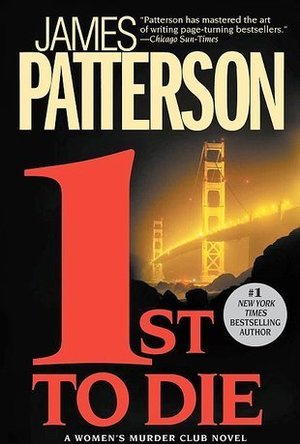
1st to Die (Women's Murder Club, #1)
Book
James Patterson, bestselling author of the Alex Cross novels Along Came a Spider, Kiss the Girls,...
Hazel (2934 KP) rated The Coffinmaker's Garden (Ash Henderson #3) in Books
Jan 17, 2021
I realise that starting to read a series on book 3 is probably not the best idea but having previously read and enjoyed some of Stuart MacBride's Logan McRae series, I thought what the heck and I certainly wasn't disappointed in the slightest and would definitely say this works as a standalone.
What we have here are 2 investigations that are equally disturbing and upsetting - a serial killer who has gone undetected for decades and a child killer who is refining his modus operandi with each innocent life he takes. Ash, in his role as consultant, is involved in both.
The characters are great - Ash, Alice, Mother, Shifty, DS Franklin and even Henry - all of them in fact, some may be a tad OTT or stereotypical but all had their place and their own little quirks which made them believable. The various settings were really well written with the scenes being so well written that they invoked sounds and smells that put me right there.
The book is written mainly from Ash's point of view. He can be a cynical and grumpy so-and-so and definitely doesn't do things by the books and does have questionable decision-making skills at times, but he definitely grew on me; I think it was his dark sense of humour that did it but also his aversion to authority who have been so far removed from the job that they haven't got a clue helped a bit ... oh and the fact that he certainly gets put through the wringer by Mr MacBride during his investigation and from what has obviously gone on in the previous books in the series, which might have had something to do with it too!
With the story lines being as dark as they are, you might think this is a dark and depressing read but fear not, this is not the case at all. Yes, as you can imagine, it's not a laugh a minute and there is quite a lot of violence throughout but there are plenty of lighter moments that will have you laughing out loud. You do have to suspend reality for some parts of the book as there are bits that are a little unbelievable but if you can't do this in a work of fiction, when can you? and it certainly didn't spoil my reading experience.
All in all, a really great book and one I would highly recommend to those of you who love their crime thrillers dark both in the plot and the humour.
Thanks to HarperCollins / HarperFiction and NetGalley for my copy in exchange for an honest, unbiased and unedited review.
What we have here are 2 investigations that are equally disturbing and upsetting - a serial killer who has gone undetected for decades and a child killer who is refining his modus operandi with each innocent life he takes. Ash, in his role as consultant, is involved in both.
The characters are great - Ash, Alice, Mother, Shifty, DS Franklin and even Henry - all of them in fact, some may be a tad OTT or stereotypical but all had their place and their own little quirks which made them believable. The various settings were really well written with the scenes being so well written that they invoked sounds and smells that put me right there.
The book is written mainly from Ash's point of view. He can be a cynical and grumpy so-and-so and definitely doesn't do things by the books and does have questionable decision-making skills at times, but he definitely grew on me; I think it was his dark sense of humour that did it but also his aversion to authority who have been so far removed from the job that they haven't got a clue helped a bit ... oh and the fact that he certainly gets put through the wringer by Mr MacBride during his investigation and from what has obviously gone on in the previous books in the series, which might have had something to do with it too!
With the story lines being as dark as they are, you might think this is a dark and depressing read but fear not, this is not the case at all. Yes, as you can imagine, it's not a laugh a minute and there is quite a lot of violence throughout but there are plenty of lighter moments that will have you laughing out loud. You do have to suspend reality for some parts of the book as there are bits that are a little unbelievable but if you can't do this in a work of fiction, when can you? and it certainly didn't spoil my reading experience.
All in all, a really great book and one I would highly recommend to those of you who love their crime thrillers dark both in the plot and the humour.
Thanks to HarperCollins / HarperFiction and NetGalley for my copy in exchange for an honest, unbiased and unedited review.
Emma @ The Movies (1786 KP) rated The Limehouse Golem (2016) in Movies
Sep 25, 2019
The community of Limehouse in Victorian London have been rocked by a series of murders. They have called the mudered the Golem, as only such a creature could have done these heinous acts.
Elizabeth Cree, the music hall star, has been arrested for the poisoning of her husband John Cree on the same night as the last Golem murder. But when evidence is found by Inspector John Kildare that links John Cree to the murders, he sets about trying to solve both cases so that he might save Elizabeth from hanging for her crime.
Their investigation leads them to an exclusive reading room at the library, and a book on the art of murder. Within its pages are hand written notes chronicling the Golem murders to date. Only four men entered the reading room when the last entry was made; Dan Leno, Karl Marx, George Gissing and John Cree. Can the inspector eliminate the other three men and prove Cree is the Golem in order to save Elizabeth?
I was looking forward to this one. Some top actors were involved, and I love a bit of Victorian era murder. The film itself was good throughout, I can't fault it for the scenery and acting.
But...
Those of you that know me, know that I don't think about films. I'm sure I keep saying this. I watch them to have some fun, to escape reality, so what's the point in picking apart something that's made as a fiction to entertain you?
Even with me suspending my brain function for the duration of the film, I paused and thought... oh, this is what's going to happen... and it did. It felt a bit cliche, like the twist had been overused in every film like this that I'd seen. I don't think it was designed that way though. There was a clear moment in the film where they want you to know what is happening, but the realisation of the ending cam much earlier than this. And it was disappointing. I was enjoying the film a lot until I realised what was coming. Talking to my movie buddy I discovered that I wasn't the only one who had this feeling. It's such a shame, but the twist felt so obvious to me that I was suddenly very disappointed.
I have taken to looking at Rotten Tomatoes after seeing a film, and this one is currently sitting at 77% with critics and 61% with the audience. I'd say that's about right. I've left the major spoiler out of here, but if you're familiar with this sort of story then I don't think you'd be hard pressed to work it out. It is an excellent film in it's genre, but it was let down, for me, by the obvious direction it went in.
Elizabeth Cree, the music hall star, has been arrested for the poisoning of her husband John Cree on the same night as the last Golem murder. But when evidence is found by Inspector John Kildare that links John Cree to the murders, he sets about trying to solve both cases so that he might save Elizabeth from hanging for her crime.
Their investigation leads them to an exclusive reading room at the library, and a book on the art of murder. Within its pages are hand written notes chronicling the Golem murders to date. Only four men entered the reading room when the last entry was made; Dan Leno, Karl Marx, George Gissing and John Cree. Can the inspector eliminate the other three men and prove Cree is the Golem in order to save Elizabeth?
I was looking forward to this one. Some top actors were involved, and I love a bit of Victorian era murder. The film itself was good throughout, I can't fault it for the scenery and acting.
But...
Those of you that know me, know that I don't think about films. I'm sure I keep saying this. I watch them to have some fun, to escape reality, so what's the point in picking apart something that's made as a fiction to entertain you?
Even with me suspending my brain function for the duration of the film, I paused and thought... oh, this is what's going to happen... and it did. It felt a bit cliche, like the twist had been overused in every film like this that I'd seen. I don't think it was designed that way though. There was a clear moment in the film where they want you to know what is happening, but the realisation of the ending cam much earlier than this. And it was disappointing. I was enjoying the film a lot until I realised what was coming. Talking to my movie buddy I discovered that I wasn't the only one who had this feeling. It's such a shame, but the twist felt so obvious to me that I was suddenly very disappointed.
I have taken to looking at Rotten Tomatoes after seeing a film, and this one is currently sitting at 77% with critics and 61% with the audience. I'd say that's about right. I've left the major spoiler out of here, but if you're familiar with this sort of story then I don't think you'd be hard pressed to work it out. It is an excellent film in it's genre, but it was let down, for me, by the obvious direction it went in.
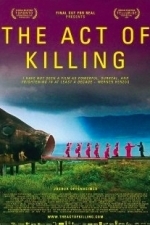
The Act Of Killing (2012)
Movie Watch
Anwar Congo and his friends have been dancing their way through musical numbers, twisting arms in...
